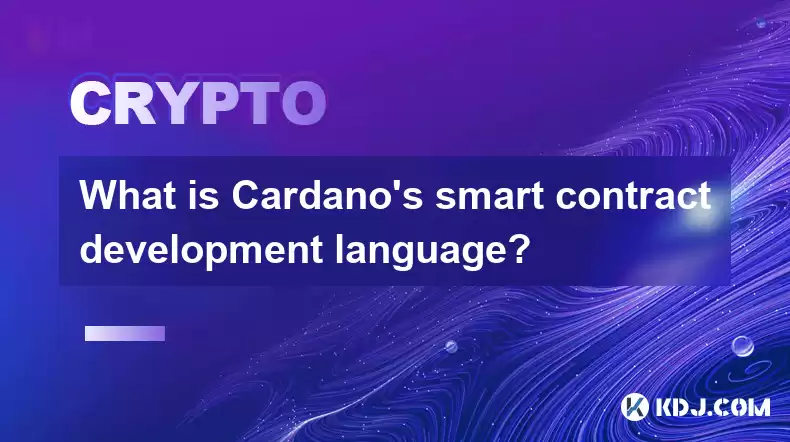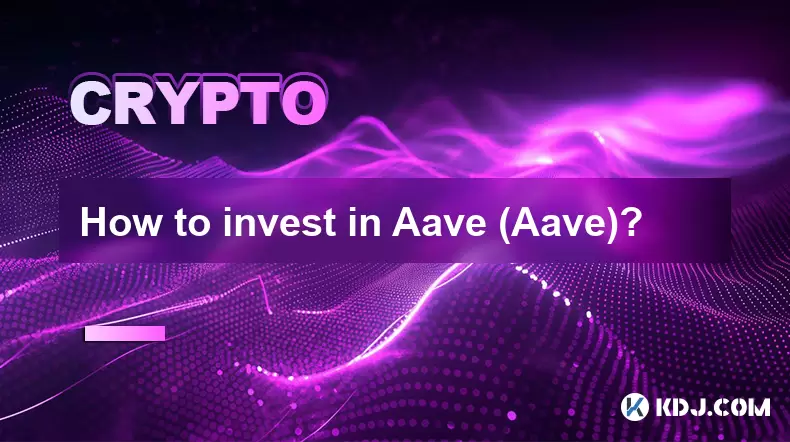-
 Bitcoin
Bitcoin $117300
1.99% -
 Ethereum
Ethereum $3884
5.89% -
 XRP
XRP $3.268
9.33% -
 Tether USDt
Tether USDt $1.000
0.02% -
 BNB
BNB $783.0
1.78% -
 Solana
Solana $173.6
3.51% -
 USDC
USDC $0.9999
0.00% -
 Dogecoin
Dogecoin $0.2193
7.00% -
 TRON
TRON $0.3380
0.30% -
 Cardano
Cardano $0.7769
5.08% -
 Stellar
Stellar $0.4350
9.36% -
 Hyperliquid
Hyperliquid $40.23
5.78% -
 Sui
Sui $3.739
6.95% -
 Chainlink
Chainlink $18.30
9.46% -
 Bitcoin Cash
Bitcoin Cash $581.7
2.11% -
 Hedera
Hedera $0.2577
5.51% -
 Ethena USDe
Ethena USDe $1.001
0.00% -
 Avalanche
Avalanche $23.08
4.23% -
 Litecoin
Litecoin $121.7
2.24% -
 UNUS SED LEO
UNUS SED LEO $8.962
-0.34% -
 Toncoin
Toncoin $3.332
1.36% -
 Shiba Inu
Shiba Inu $0.00001273
3.39% -
 Uniswap
Uniswap $10.35
6.84% -
 Polkadot
Polkadot $3.818
4.01% -
 Dai
Dai $1.000
0.01% -
 Bitget Token
Bitget Token $4.446
2.13% -
 Cronos
Cronos $0.1491
4.96% -
 Monero
Monero $255.4
-9.78% -
 Pepe
Pepe $0.00001099
4.80% -
 Aave
Aave $284.0
8.01%
What is Cardano's smart contract development language?
Understanding Cardano's native programming language, Plutus, empowers developers to create secure, scalable, and interoperable smart contracts, fostering the growth of decentralized applications on the Cardano blockchain.
Feb 16, 2025 at 05:36 am

Key Points:
- Understanding Cardano's Native Programming Language: Plutus
- Exploring Plutus Smart Contract Architecture and Features
- Mastering Plutus's Scalability, Security, and Interoperability
- Discovering the Benefits of Using Plutus for Smart Contract Development
- Uncovering the Top 3 Smart Contract Languages for Cardano Alternatives
- Evaluating the Advantages and Disadvantages of Each Alternative
- Exploring the Future of Smart Contract Development on Cardano
1. Understanding Cardano's Native Programming Language: Plutus
Plutus is the purpose-built smart contract development language at the heart of Cardano's blockchain. It empowers developers to create secure, reliable, and scalable smart contracts that seamlessly integrate with the Cardano ecosystem. Plutus embodies functional programming principles, fostering code clarity, testability, and formal verification, ensuring robust and bug-free smart contracts.
2. Exploring Plutus Smart Contract Architecture and Features
Plutus smart contracts adopt a two-layer architecture, separating the scripting layer from the validation layer. This enables developers to write scripts in a high-level language, while the validation layer ensures mathematical correctness and adherence to defined rules. Plutus features a native token called Lovelace, serving as the unit of account within smart contracts. Its intuitive syntax and rich set of libraries simplify development, allowing developers to focus on business logic rather than low-level implementation details.
3. Mastering Plutus's Scalability, Security, and Interoperability
Plutus prioritizes scalability through its novel approach to concurrency, enabling multiple smart contracts to execute simultaneously without compromising performance. Its strong security measures, including formal verification and type checking, minimize vulnerabilities and safeguard user funds. Plutus promotes interoperability by seamlessly integrating with other blockchains and supporting cross-chain communication.
4. Discovering the Benefits of Using Plutus for Smart Contract Development
Utilizing Plutus for smart contract development offers numerous advantages. Its functional programming paradigm simplifies code maintenance and reduces the risk of errors. Plutus's native integration with Cardano ensures seamless interoperability and access to the Cardano ecosystem's tools and resources. Moreover, the language's focus on formal verification enhances security and boosts confidence in smart contract reliability.
5. Uncovering the Top 3 Smart Contract Languages for Cardano Alternatives
While Plutus remains the primary smart contract language for Cardano, alternative options exist:
- Haskell: A functional programming language that provides a high degree of flexibility and expressiveness for smart contract development on Cardano.
- Rust: A systems programming language known for its memory safety and performance, offering alternative approaches to smart contract creation.
- Python: A popular general-purpose language that can be integrated with Cardano's blockchain through third-party tools, enabling developers to leverage existing Python libraries and frameworks.
6. Evaluating the Advantages and Disadvantages of Each Alternative
Haskell:
- Advantages: Functional programming paradigm, type safety, rich ecosystem
- Disadvantages: Steep learning curve, less intuitive syntax than Plutus
Rust:
- Advantages: High performance, memory safety, low-level control
- Disadvantages: Complex syntax, limited ecosystem for Cardano development
Python:
- Advantages: Extensive library support, ease of learning, wide developer community
- Disadvantages: Potential performance limitations, additional integration effort
7. Exploring the Future of Smart Contract Development on Cardano
The future of smart contract development on Cardano is bright. Ongoing research and development efforts aim to enhance Plutus's capabilities, including improving its performance, expanding its expressiveness, and strengthening its security features. The Cardano community actively contributes to the evolution of smart contract development, fostering innovation and driving the adoption of Plutus as the preferred choice for building decentralized applications on the Cardano blockchain.
FAQs:
Q: Why is Plutus considered the native programming language for Cardano?
A: Plutus is purpose-built for the Cardano blockchain, offering seamless integration, scalability, security, and interoperability, catering specifically to the needs of smart contract development on Cardano.
Q: What are the primary benefits of using Plutus for smart contract development?
A: Plutus empowers developers with a functional programming paradigm, ensuring code clarity and testability, while formal verification enhances security and reduces the risk of vulnerabilities.
Q: How does Plutus ensure the scalability of smart contracts on Cardano?
A: Plutus adopts a novel approach to concurrency, enabling multiple smart contracts to execute simultaneously, maximizing throughput and minimizing bottlenecks, thereby ensuring scalability.
Q: What alternative smart contract languages are available for Cardano besides Plutus?
A: Alternative smart contract languages for Cardano include Haskell, Rust, and Python, offering varying levels of expressiveness, performance, and ease of use, catering to different developer preferences and use cases.
Q: What are the future prospects for smart contract development on Cardano?
A: Continuous research and development efforts focus on enhancing Plutus's capabilities, including performance optimizations, expanded expressiveness, and strengthened security measures, driving innovation and adoption of smart contract development on Cardano.
Disclaimer:info@kdj.com
The information provided is not trading advice. kdj.com does not assume any responsibility for any investments made based on the information provided in this article. Cryptocurrencies are highly volatile and it is highly recommended that you invest with caution after thorough research!
If you believe that the content used on this website infringes your copyright, please contact us immediately (info@kdj.com) and we will delete it promptly.
- Cold Wallet Crypto in 2025: The Future is Now, Ya'll
- 2025-08-08 05:10:13
- MAGACOIN, SOL, and ADA: A Tale of Shifting Tides in Crypto
- 2025-08-08 05:10:13
- SHIB Price, PEPE, and the Memecoin Supercycle: Who Will Reign Supreme?
- 2025-08-08 05:50:12
- Pudgy Penguins Price Prediction: Google Trends & Breakout Signals
- 2025-08-08 05:50:12
- UAE Crypto Regulation: SCA and VARA Unite to Streamline the Future of Digital Assets
- 2025-08-08 05:55:48
- MAGACOIN Finance: The Presale Phenomenon Rocking the Crypto World
- 2025-08-08 05:55:48
Related knowledge

Where can I buy UMA (UMA)?
Aug 07,2025 at 06:42pm
Understanding UMA and Its Role in Decentralized FinanceUMA (Universal Market Access) is an Ethereum-based decentralized finance (DeFi) protocol design...

What exchanges support buying IOTA (MIOTA)?
Aug 07,2025 at 09:58pm
Understanding the Role of Private Keys in Cryptocurrency SecurityIn the world of cryptocurrency, private keys are the cornerstone of ownership and con...

How to acquire Holo (HOT) tokens?
Aug 08,2025 at 05:56am
Understanding Holo (HOT) and Its EcosystemHolo (HOT) is a cryptocurrency token associated with the Holo ecosystem, which is built on the Holochain fra...

What is the best app to buy EOS?
Aug 07,2025 at 04:35pm
Understanding EOS and Its Role in the Cryptocurrency EcosystemEOS is a blockchain platform designed to support decentralized applications (dApps) with...

What platforms support buying Fantom (FTM)?
Aug 08,2025 at 01:56am
Overview of Fantom (FTM) and Its EcosystemFantom (FTM) is a high-performance, scalable, and secure layer-1 blockchain designed to overcome the limitat...

How to invest in Aave (Aave)?
Aug 08,2025 at 01:07am
Understanding Aave (AAVE) and Its Role in DeFiAave is a decentralized finance (DeFi) protocol that enables users to lend, borrow, and earn interest on...

Where can I buy UMA (UMA)?
Aug 07,2025 at 06:42pm
Understanding UMA and Its Role in Decentralized FinanceUMA (Universal Market Access) is an Ethereum-based decentralized finance (DeFi) protocol design...

What exchanges support buying IOTA (MIOTA)?
Aug 07,2025 at 09:58pm
Understanding the Role of Private Keys in Cryptocurrency SecurityIn the world of cryptocurrency, private keys are the cornerstone of ownership and con...

How to acquire Holo (HOT) tokens?
Aug 08,2025 at 05:56am
Understanding Holo (HOT) and Its EcosystemHolo (HOT) is a cryptocurrency token associated with the Holo ecosystem, which is built on the Holochain fra...

What is the best app to buy EOS?
Aug 07,2025 at 04:35pm
Understanding EOS and Its Role in the Cryptocurrency EcosystemEOS is a blockchain platform designed to support decentralized applications (dApps) with...

What platforms support buying Fantom (FTM)?
Aug 08,2025 at 01:56am
Overview of Fantom (FTM) and Its EcosystemFantom (FTM) is a high-performance, scalable, and secure layer-1 blockchain designed to overcome the limitat...

How to invest in Aave (Aave)?
Aug 08,2025 at 01:07am
Understanding Aave (AAVE) and Its Role in DeFiAave is a decentralized finance (DeFi) protocol that enables users to lend, borrow, and earn interest on...
See all articles

























































































